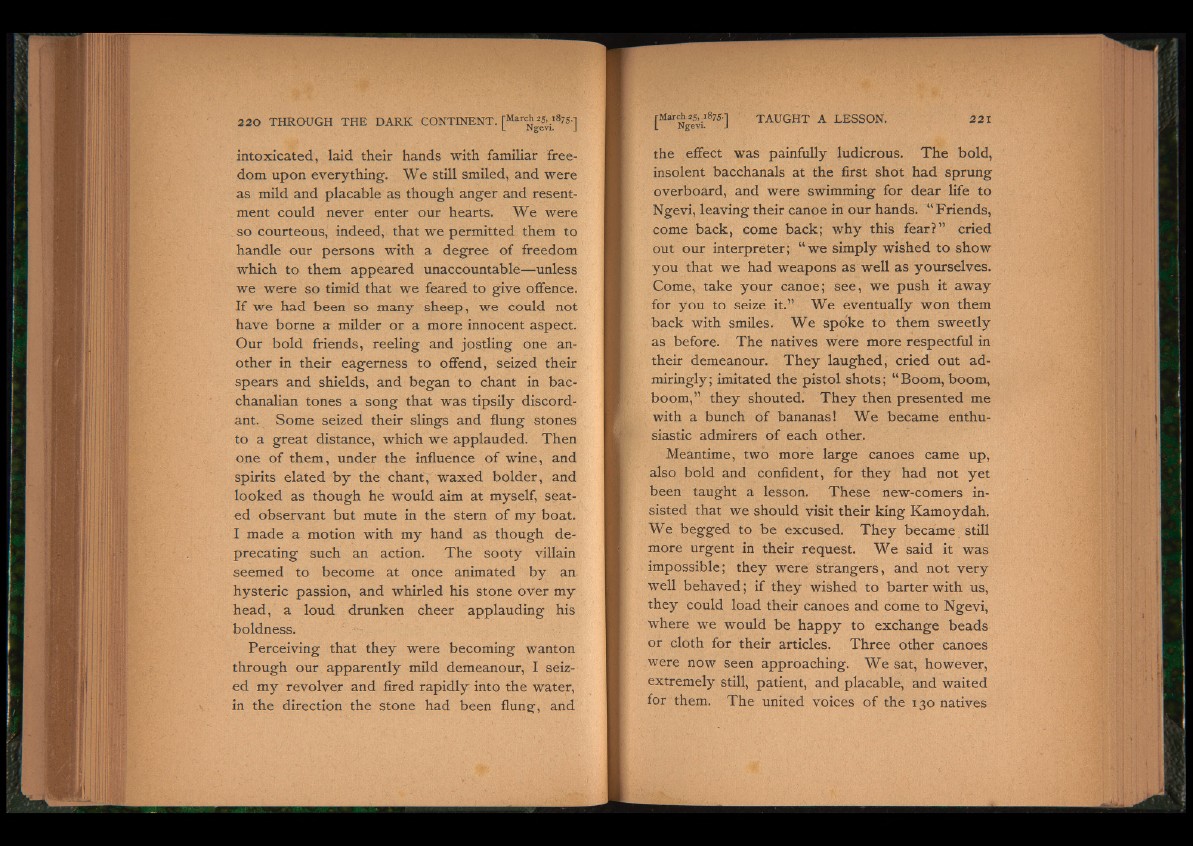
intoxicated, laid their hands with familiar freedom
upon everything. W e still smiled, and were
as mild and placable as though anger and resentment
could never enter our hearts. W e were
. so courteous, indeed, that we permitted them to
handle our persons with a degree of freedom
which to them appeared unaccountable— unless
we were so timid that we feared to give offence.
I f we had been so many sheep , we could not
have borne a milder or a more innocent aspect.
Our bold friends, reeling and jostling one another
in their eagerness to offend, seized their
spears and shields, and began to chant in bacchanalian
tones a song that was tipsily discordant.
Some seized their slings and flung stones
to a great distance, which we applauded. Then
one o f them, under the influence o f wine, and
spirits elated b y the chant, w a x ed bolder, and
lo ok ed as though he would aim at myself, seated
observant but mute in the stern o f my boat.
I made a motion with my hand as though deprecating
such an action. The so o ty villain
seemed to become at once animated b y an
hysteric passion, and whirled his stone over my
head, a loud drunken cheer applauding his
boldness.
Perceiving that th ey were becoming wanton
through our apparently mild demeanour, I seized
my revolver and fired rapidly into the water,
in the direction the stone had been flung, and
the effect was painfully ludicrous. T h e bold,
insolent bacchanals at the first shot had sprung
overboard, and were swimming for dear life to
Ngevi, leaving their canoe in our hands. “ Friends,
come back, come back; w h y this fear?” cried
out our interpreter; “ we simply wished to show
you that we had weapons as well as yourselves.
Come, take your canoe; see , we push it aw ay
for you to seize it.” W e eventually won them
back with smiles. W e spoke to them sw e e tly
as before. The natives were more respectful in
their demeanour. T h e y laughed, cried out admiringly;
imitated the pistol shots; “ Boom, boom,
boom,” they shouted. T h e y then presented me
with a bunch o f bananas! W e became enthusiastic
admirers o f each other.
Meantime, two more large canoes came up,
also bold and confident, for they had not y e t
been taught a lesson. These new-comers insisted
that we should visit their king Kamoydah.
W e begged to be excused. T h e y became still
more urgent in their request. W e said it was
impossible; they were strangers, and not v e ry
well behaved; if they wished to barter with us,
they could load their canoes and come to Ngevi,
where we would be happy to exchange beads
or cloth for their articles. Three other canoes
were now seen approaching. W e sat, however,
extremely still, patient, and placable, and waited
for them. T he united voices o f the 130 natives